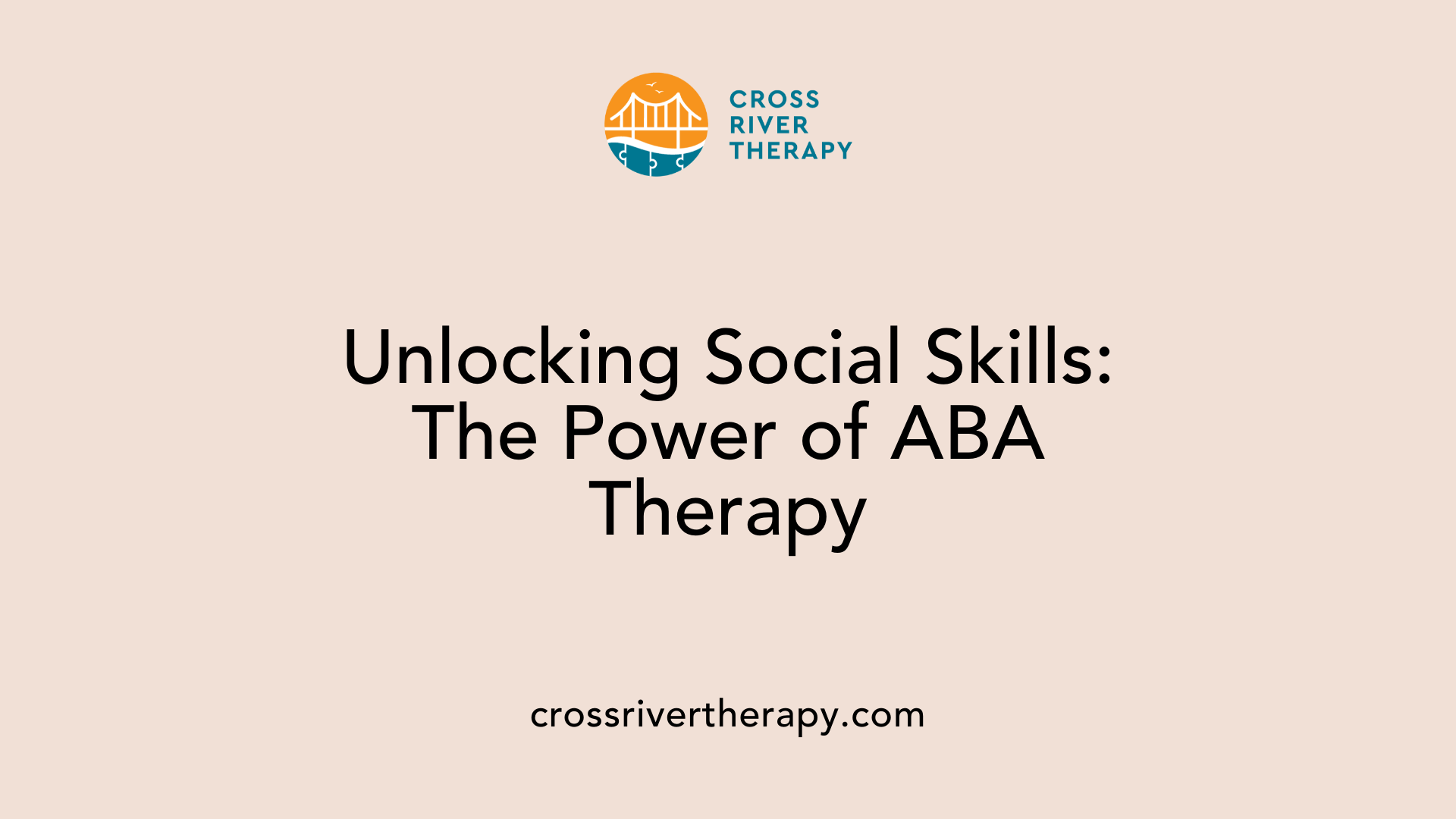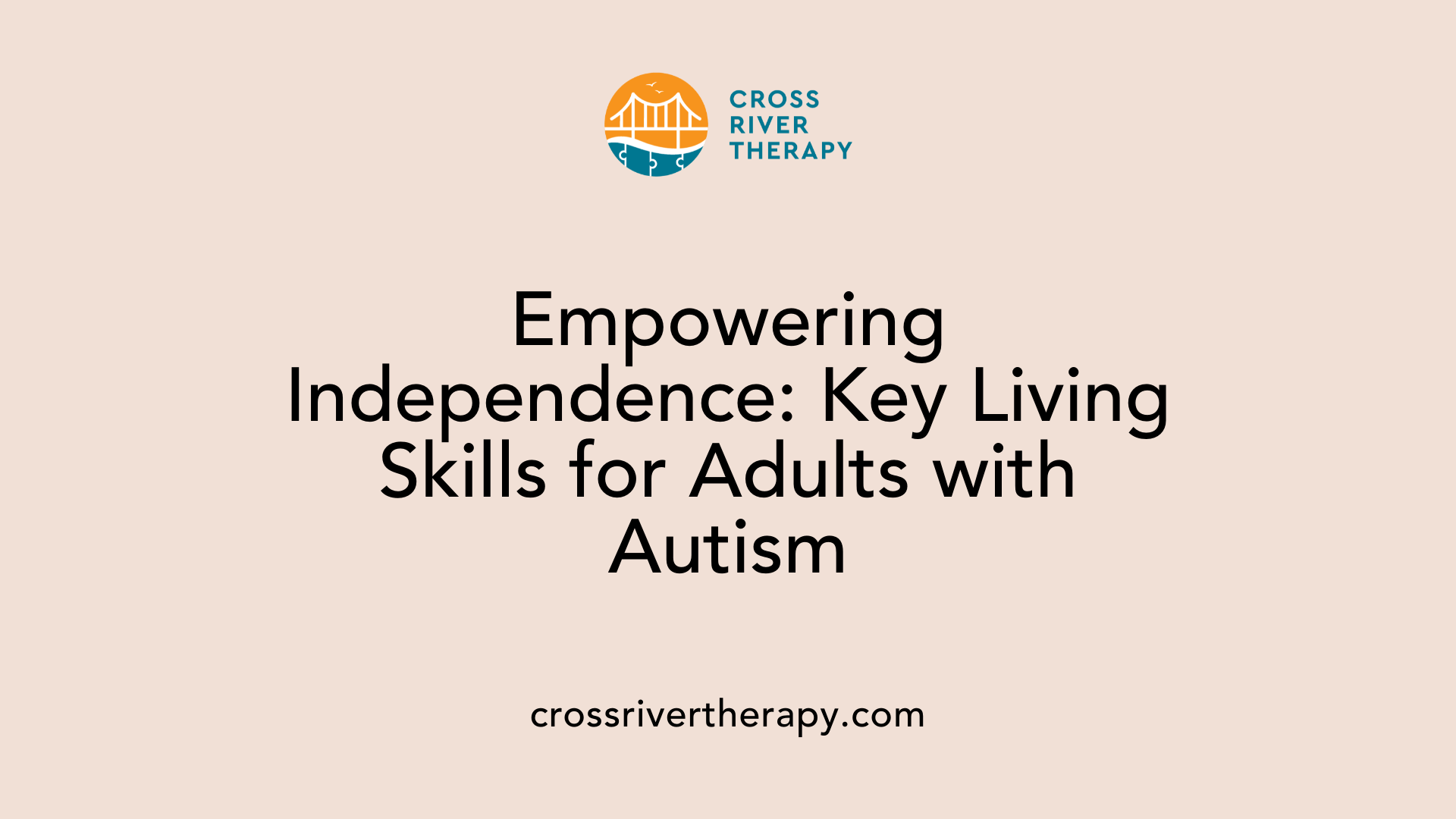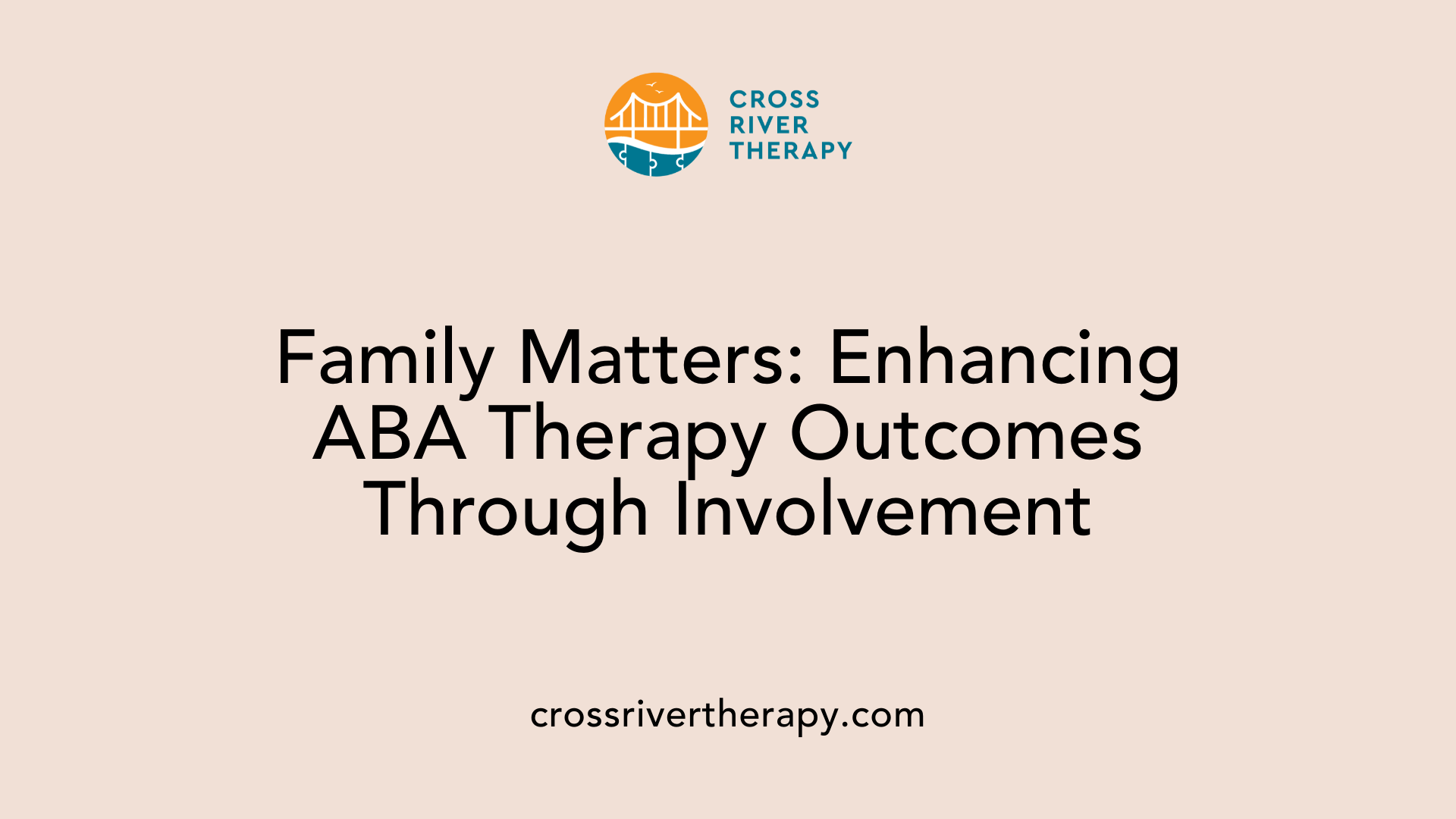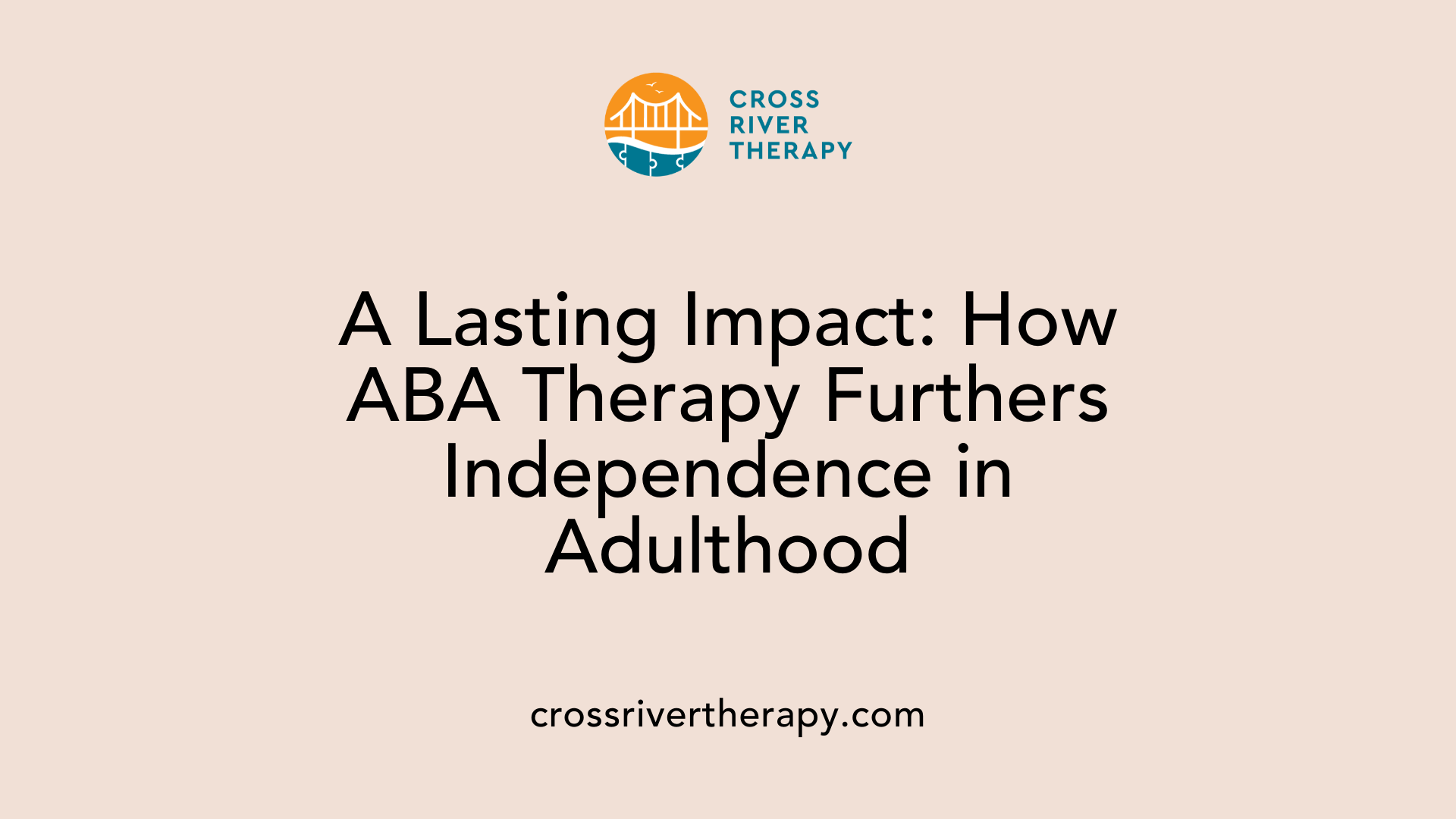ABA Therapy and Its Role in Promoting Independent Living Skills
Empowering Independence Through ABA Therapy
Introduction
Applied Behavior Analysis (ABA) therapy is a transformative approach that aids individuals with autism in acquiring skills crucial for independent living. This structured methodology focuses on promoting self-sufficiency by breaking down tasks, enhancing communication, and teaching essential daily routines. Understanding how ABA therapy operates and its long-term benefits provides insights into its profound impact on independent living.
Enhancing Communication and Social Skills Through ABA

How does ABA therapy help with social skills?
ABA therapy significantly enhances social skills with structured, evidence-based approaches tailored to meet individual needs, particularly benefiting children with autism. Improved communication abilities are at the forefront of this process, where children learn essential skills such as initiating conversations, taking turns, and interpreting social cues.
Techniques Used in ABA Therapy
The methods utilized in ABA include:
- Modeling: Therapists demonstrate appropriate social interactions, which children then imitate.
- Role-Playing: This interactive approach helps children practice various social scenarios in a safe environment.
- Positive Reinforcement: Desired social behaviors are encouraged through rewards, promoting their repetition and mastery.
Natural Environment Training (NET)
Natural Environment Training (NET) is also a critical component. This technique allows children to practice their communication and social skills in real-life contexts, ensuring that learned behaviors are more easily transferred to everyday situations.
The Impact on Relationships
This holistic approach not only fosters independent social functioning but also lays a solid foundation for building meaningful relationships. By improving both verbal and non-verbal communication abilities, ABA therapy equips children with vital tools for effective social engagement, crucial for their overall development and well-being.
Through these targeted strategies, ABA therapy successfully promotes greater confidence and independence in social settings.
Defining Independent Living Skills for Adults with Autism

What are independent living skills for adults with autism?
Independent living skills for adults with autism encompass a variety of necessary competencies that enable individuals to manage their daily lives successfully. These skills are essential for fostering independence across home, school, and community settings. Key areas include:
- Self-Care: Tasks such as grooming, dressing, and personal hygiene are foundational, helping to build confidence in daily routines.
- Money Management: Understanding budgeting, saving, and making purchases is crucial for financial independence.
- Transportation: Skills related to navigating public transport and personal travel ensure safe mobility.
- Social Skills Development: Communicating effectively and engaging in social interactions helps build relationships and community integration.
Personalized approaches
Teaching these skills effectively involves personalized approaches tailored to each individual’s strengths and challenges. These methodologies emphasize the unique needs of adults with autism, incorporating structured independent living programs and life skills classes that provide hands-on experience. Techniques like task analysis and practical checklists can help break down complex skills into manageable steps, facilitating learning in real-life situations.
Overall, skill development promotes not just daily functioning but enhances social engagement and prepares individuals for career opportunities, ultimately working to improve their quality of life.
ABA Therapy and Life Skills Development

How does ABA therapy support independence through life skills?
ABA therapy plays a crucial role in nurturing independence for individuals with developmental challenges by honing essential life skills. During this process, customized teaching strategies are employed to meet the specific requirements of each individual with autism. This personalized approach ensures that all learners engage with the material in a meaningful way.
In terms of hands-on learning, ABA therapy focuses on everyday tasks that enhance independent living. Here are several life skills taught:
- Cooking: Individuals learn meal preparation techniques to encourage self-sufficiency in the kitchen.
- Household Chores: Tasks such as cleaning and organizing are broken down into manageable steps, facilitating routine completion.
- Money Management: Basic budgeting and financial literacy are developed through practical, real-world scenarios.
To support the learning of these skills, ABA employs evidence-based methods such as:
- Visual Supports: These aid in demonstrating tasks and maintaining engagement.
- Prompting Techniques: Initially assisting individuals while gradually reducing guidance as mastery increases.
- Positive Reinforcement: Rewarding progress fosters motivation and a sense of accomplishment.
Moreover, integrating ABA therapy with other services, such as speech or occupational therapy, can further empower individuals. This comprehensive support can enhance communication and social interaction, contributing to overall functionality in daily life.
ABA therapy not only teaches vital life skills but does so in a structured and supportive environment, promoting greater independence and a better quality of life for individuals with autism.
Family's Crucial Role in ABA Therapy Success

What is the significance of family involvement in ABA therapy?
Family involvement in ABA therapy is vital for fostering consistency, generalization, and long-term success in children. Educating parents on ABA techniques enables them to reinforce skills learned in therapy at home, ultimately enhancing the child’s progress. Research indicates that children whose parents actively participate in their therapy tend to achieve significant developmental milestones.
Parental engagement in the ABA process also encourages collaboration with therapists, ensuring that treatment plans are customized to meet the child's unique needs. This collaborative approach not only enhances the effectiveness of behavior changes across various settings but also supports skill generalization. Families play an essential role in applying learned skills in real-life situations, reinforcing the concepts practiced during therapy.
Additionally, involving family members strengthens the emotional bond within the family, creating a supportive environment that nurtures the child's growth. Access to consistent support from family enhances motivation and promotes self-esteem, crucial factors for achieving independence. Through active participation, families contribute to the overall success of ABA therapy, facilitating a smoother transition of skills into everyday life.
Long-Term Benefits of ABA Therapy for Independence

What are the long-term impacts of ABA therapy on independence for individuals with autism?
ABA therapy has proven to deliver substantial long-term impacts on independence for individuals with autism spectrum disorder (ASD). Research indicates that the skills learned through ABA therapy often have lasting effects, promoting better adult outcomes. Longitudinal studies show that individuals who participated in ABA therapy tend to achieve higher employment rates, which greatly contributes to their independence.
One essential aspect of ABA therapy is its focus on individualized treatment plans. These plans, tailored to meet the unique needs of each person, ensure that the learning process is effective and relevant. The involvement of family members during therapy plays a crucial role in reinforcing these skills, which further enhances the long-term benefits.
Moreover, the skills targeted in ABA therapy include essential life skills, communication abilities, and social competencies. These areas are vital for fostering independence. As individuals develop adaptive behaviors—skills that help them respond to their environment and manage daily challenges—their overall quality of life improves significantly.
Employment and Quality of Life
ABA therapy is particularly effective in preparing individuals for employment. The development of vocational skills, along with executive functioning abilities, equips them to navigate workplace dynamics successfully. This readiness is instrumental not only in securing jobs but also in maintaining them, which is essential for independent living.
Quality of life does not solely depend on employment; it also encompasses the ability to manage daily tasks and relationships. Through ABA methods, individuals learn to manage hygiene, household responsibilities, and financial tasks. This comprehensive skill set enhances self-sufficiency, underscoring the therapy's positive influence.
Adaptive Behavior and Ongoing Support
However, while many individuals achieve remarkable progress through ABA, some may still require ongoing support to thrive independently. These support systems can include continued therapy or family reinforcement, which emphasizes the importance of community and consistent environments.
In summary, ABA therapy is a proactive approach that not only promotes independence during childhood but sets the stage for enduring self-sufficiency and quality of life into adulthood. The focus on adaptive behavior, tailored goals, and family participation underscores its effectiveness in making lasting differences for individuals with autism.
Breaking Down Tasks: ABA's Structured Approach
Task Analysis for Achieving Independence
In Applied Behavior Analysis (ABA) therapy, task analysis is a method that breaks complex tasks into simpler, manageable steps. This structured approach enables individuals to learn essential skills progressively, fostering greater independence in daily living activities.
Prompting and Fading Techniques
Prompting is another crucial strategy used in ABA therapy. Initially, therapists provide verbal or physical cues to assist individuals in learning new tasks. As competence increases, these prompts are gradually faded, allowing for increased independence in executing the tasks without assistance.
The Role of Positive Reinforcement
Positive reinforcement plays a vital role in encouraging desired behaviors during therapy. By rewarding individuals for mastering self-care and independent living tasks, therapists stimulate motivation and enhance the learning process. Over time, this reinforcement decreases as confidence builds, promoting further independence.
Enhancing Self-Esteem Through Mastery
The combination of task analysis, prompting, and positive reinforcement significantly boosts self-esteem as individuals achieve their goals. Each small victory in mastering life skills enhances the belief in one’s capabilities, ultimately leading to improved self-sufficiency and quality of life.
Tailoring ABA Therapy for Unique Needs
Personalized Goals
ABA therapy begins with a comprehensive assessment performed by trained therapists. This evaluation helps identify an individual’s strengths and weaknesses, forming the basis for customized goals. Personalized goals ensure that therapy addresses the unique needs and interests of each individual, making learning more engaging and effective.
SMART Goals Framework
To enhance the utility of these personalized goals, the SMART goals framework is implemented. This structure includes Specific, Measurable, Achievable, Relevant, and Time-bound criteria, ensuring clarity and focus in skill development. This approach allows therapists and families to track progress effectively and adjust strategies as necessary.
Behavior Management
A critical component of personalized ABA therapy is behavior management. Therapists work with individuals to identify triggers and develop alternative coping strategies. This self-regulation fosters independence by equipping individuals with the tools to handle challenges more effectively in everyday scenarios.
Transition Planning
Transition planning is another essential aspect of tailored ABA therapy, preparing individuals for significant changes in life stages. This involves imparting the necessary skills for greater independence, whether in educational settings, vocational pursuits, or personal responsibilities. Effective transition planning ensures a smoother adjustment to new environments and tasks.
Conclusion
ABA therapy stands at the forefront of promoting independence for individuals with autism, offering a blend of structure, personalized plans, and proven techniques that foster significant improvements in daily living skills. Through effective communication, social skill development, and parental support, ABA therapy empowers individuals, enhancing their potential for a fulfilling and autonomous life. Continued exploration and application of ABA methodologies ensure its lasting impact, helping individuals with autism achieve their personal independence goals.
References
- 7 Ways ABA Therapy Supports Independent Living Skills Development
- How ABA Therapy Builds Self-Care & Independent Living Skills
- Independent Living Skills Through ABA - ABATherapistJobs.com
- ABA Therapy: Promoting Independence in Daily Life
- Independence in Individuals with Autism: Role of ABA Therapy
- The Long-term Effects of ABA Therapy for Autistic Children
- Positive and Long-term Effects of ABA Therapy for Children with ...
- Long-term outcome of autism spectrum disorder - PMC
- The Impact of ABA Therapy on Individuals with Autism
- Life skills for autism | Autism Speaks



